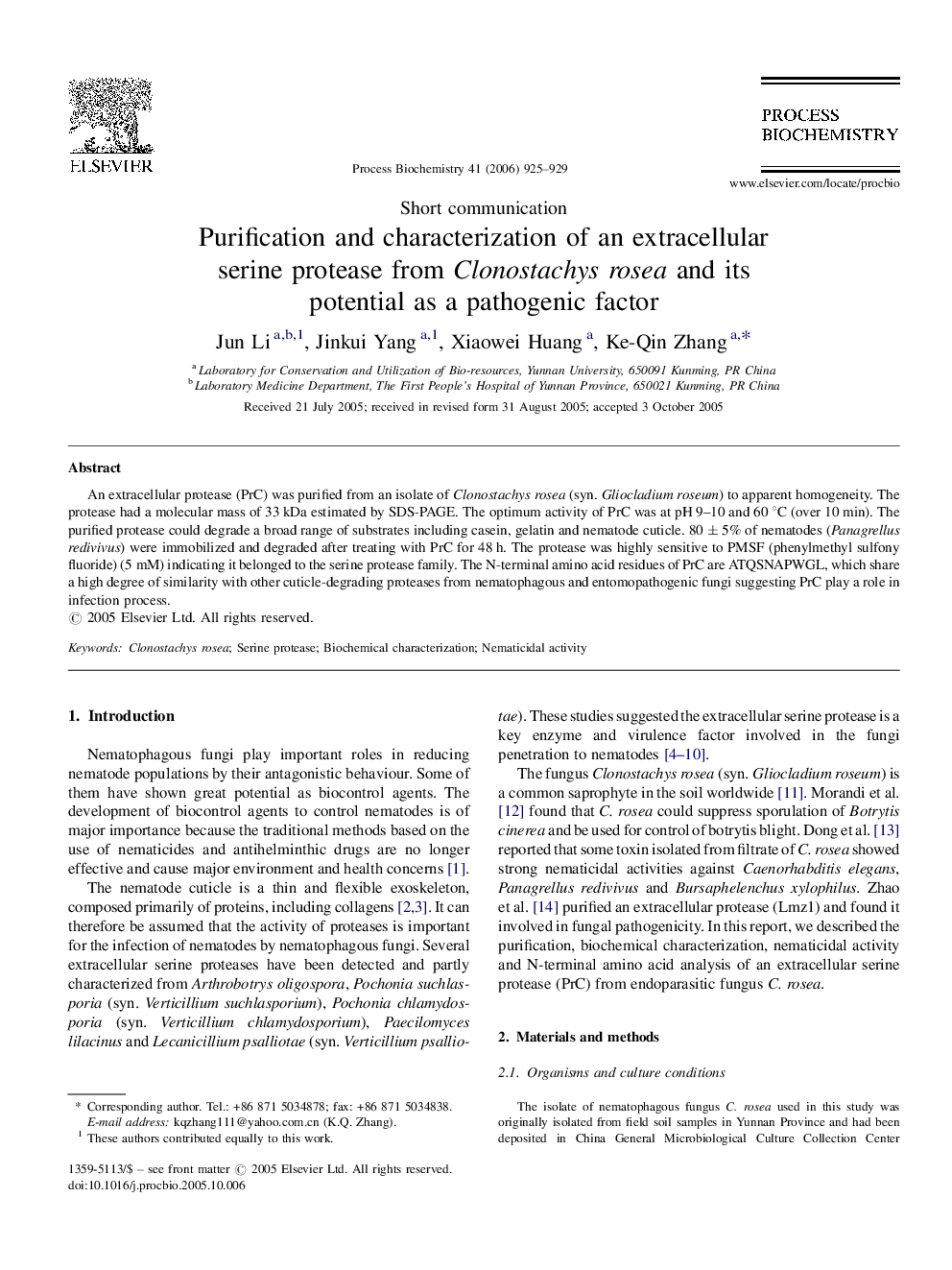| Article ID | Journal | Published Year | Pages | File Type |
|---|---|---|---|---|
| 36625 | Process Biochemistry | 2006 | 5 Pages |
An extracellular protease (PrC) was purified from an isolate of Clonostachys rosea (syn. Gliocladium roseum) to apparent homogeneity. The protease had a molecular mass of 33 kDa estimated by SDS-PAGE. The optimum activity of PrC was at pH 9–10 and 60 °C (over 10 min). The purified protease could degrade a broad range of substrates including casein, gelatin and nematode cuticle. 80 ± 5% of nematodes (Panagrellus redivivus) were immobilized and degraded after treating with PrC for 48 h. The protease was highly sensitive to PMSF (phenylmethyl sulfony fluoride) (5 mM) indicating it belonged to the serine protease family. The N-terminal amino acid residues of PrC are ATQSNAPWGL, which share a high degree of similarity with other cuticle-degrading proteases from nematophagous and entomopathogenic fungi suggesting PrC play a role in infection process.
